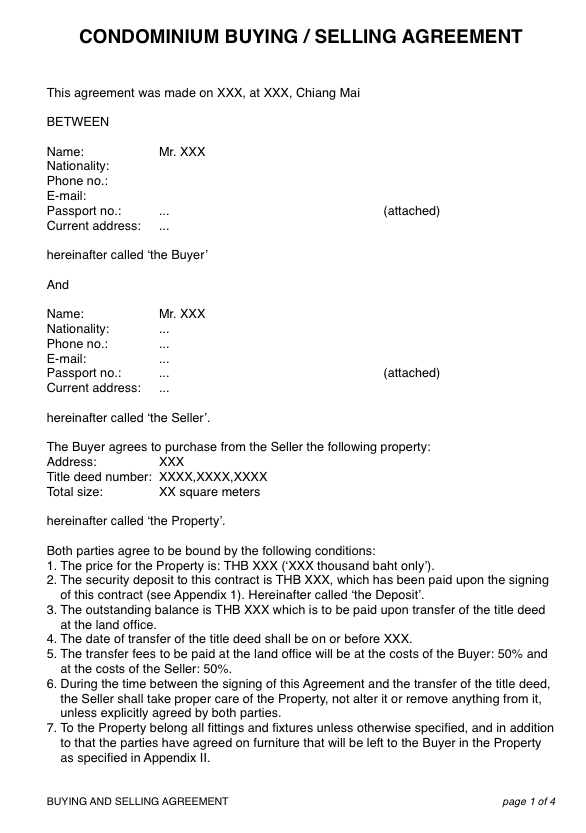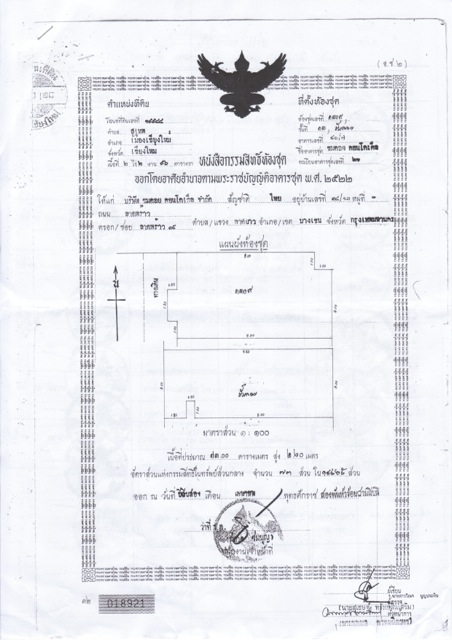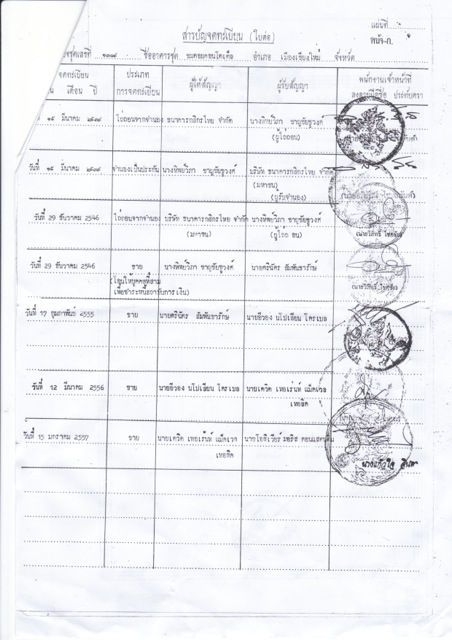How to buy a good condo?
We'll go through it step by step:
-
sourcing a condo
-
negotiating a deal
-
doing the paperwork
-
transferring the title deed

The Grand Siritara Condominium
1. Sourcing a condo
-
Decide whether the condo you buy is first and foremost an investment OR a place for yourself to live in. If it’s an investment and you want to rent it out, you’ll be concerned mostly with rentability and return on investment (ROI) or yield. If it is for yourself, you’ll most likely be more willing to pay a bit more for the place you really like.
-
After an initial orientation, decide which area of town you prefer. For example, the riverside is distinctly different from Nimmanhaemin area.
-
Source as many condos as possible, through the internet, other media and possibly involving agents. Here is a list of condos in Chiang Mai. If you know what you want but you still can't find it, we may be able to help you using a targeted approach.
-
Make a distinction between existing / older condos and new projects. Older condos are much cheaper but may suffer from some (minor) maintenance and management problems, however your unit can be renovated and generally the return can be higher. New condos may or may not be better constructed but will be more expensive per square meter and thus generally offer a lower return. More on prices, rentability and return, read the Potential of condos.
-
Have a look inside the building and inside the unit you consider. Pay particular attention to: water problems, noise, view, the lobby, the management, the parking and other residents. Inside the unit, what matters most is of course the view, as it cannot be changed by your renovation (however, it can be changed by future building constructions outside). Outside of the unit, what matters is what kind of people live there and how the place is run by the management. In the lobby you can often see other units for sale and you can compare prices.
-
If you have selected a unit you consider buying, definitely go back there at different times of the day to check noise and people around the building.
-
When you have narrowed your choices to a shortlist, you can look at more detail and start negotiations.
2. Negotiating a deal
-
In the process of reaching a deal, it's important that you know who you are talking to. Is it the owner himself, the agent, another middleman or, worse, someone who pretends to be the owner?
If the person you've been talking to is not the owner, but a middleman, that's okay as long as you know that and as long as you're able to talk directly with the owner and to verify the title deed before signing any agreement.
It's important to know this because, more often than not, middlemen in Thailand are trying to make some quick money out of a deal without contributing anything significant. If the middlemen is a real representative of the owner, he/she would need a Power of Attorney from the owner (example form from the Land Registry Office here).
-
If the position of the seller is clear and justified, you can negotiate a deal. Besides (obviously) negotiating on the asking price, you can negotiate on all kinds of other things, for example: what furniture stays behind (most of the time, most furniture stays), who pays the transfer fees (often split 50%-50% between buyer and seller, but that is by no means a rule), and the timing of transfer. Several other constructions are possible too, for example a rent agreement with the option to buy over time. It's important to be creative in negotiating the best deal for yourself while making sure it goes through. We can help in this process.
-
It is recommendable to work with a good Purchase Agreement, not only to have a legal document in your hand, but in the first place to clarify all points of agreement between buyer and seller. In the meantime, the contract will serve to allow for time for the money transfer while being sure of a mutual commitment. Besides this paper commitment, there should be a monetary commitment, which is a deposit (often 10% of the purchase price but it can be more or less).
There are many standard Purchase Agreements in the market, but many of them are not good as they may favour the seller, they may not provide adequate protection for either party, or they are simply unfair. Even contracts used by agents and lawyers (!) often suffer from these defects.
A good standard Purchase Agreement that you can work with by yourself or that we can help you to finalise you can download here. We also offer services including making and co-signing the contract together with the relevant government stamps.

-
Before signing, be sure to see the original title deed (chonod) to verify it and ask for a copy (for later purposes). To verify the title deed, you need to be able to read Thai or ask someone who can help you, because the title deed is entirely in Thai. The easiest way is to ask the management office if the seller owns the unit that you're planning to buy, because they are of course familiar with their owners, they should have a complete list, and they need to be involved later in the process for paperwork. Alternatively, you can use a lawyer, real estate agent or Thai friend to assist you, or us.

Example of a chonod

Last page of chonod containing the names of the previous and current owner(s)




